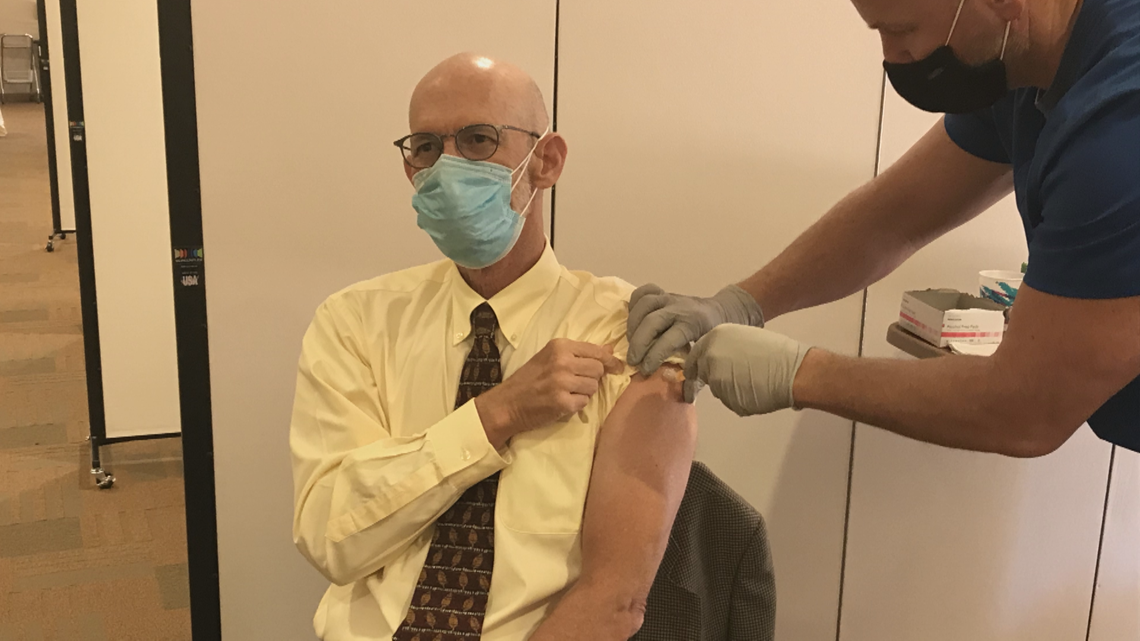ROCHESTER, Minnesota — As countries continue to roll out COVID-19 vaccine distribution, it's led to different approaches.
Earlier this month, The New York Times published an article on Britain opening the door to mix-and-match vaccinations.
Some COVID-19 vaccinations require two doses, given at different times. Both Pfizer/BioNTech's and Moderna's call for two doses.
According to updated U.K. guidelines, if the same vaccine is not available or if the first product received is unknown, it is reasonable to offer one dose of the locally available vaccine. But the guidelines also say every effort should be made to do two doses of the same vaccine. Mary Ramsay, head of immunizations at Public Health England, told Reuters mixing and matching was not recommended and would only happen on extremely rare occasions.
"I understand that thinking as a sort of desperation measure, but it's not the same thing as evidence-based dosing," said Dr. Greg Poland, professor of medicine and infectious diseases at Mayo Clinic and director of Mayo's Vaccine Research Group.
Dr. Poland stressed this is why we have clinical trials.
"The way we decide whether a vaccine is safe and effective is to subject it to clinical trials. Those clinical trials in the case of both the Moderna and the Pfizer vaccine suggested that we need two doses, and we need two doses a certain amount apart. Those trials only included two doses of the same vaccine. Once you depart from that, then we can no longer be confident about the safety, the efficacy or even the durability," Dr. Poland said.


In an effort to get more people the first vaccine dose, some countries are also delaying the second dose. The U.K. is delaying the second dose of COVID vaccines by up to 12 weeks compared to the recommended 3-4 weeks.
RELATED: More countries consider delaying second dose of COVID vaccine— here's why it might not happen here
The World Health Organization announced last week that the wait between the first and second doses may be extended up to six weeks.
"We don't know what will happen for that. What it illustrates though — and this is really important — is that we not only have secure supply chain and production but also the innovation needed to very quickly, for example, adapt clinical trial designs to say, 'What about vaccine interchangeability?' We could have that answer inside six to eight weeks. 'What about delaying a dose?' Same thing. That might take more like three months but we could test that. That's what we need to do. You need to bring science into those types of decisions," Dr. Poland explained.
The U.S. Food & Drug Administration has warned against reducing the number of doses, extending the length of time between doses, changing the dose or mixing and matching vaccines in order to immunize more people against COVID-19.
The FDA said, "Without appropriate data supporting such changes in vaccine administration, we run a significant risk of placing public health at risk, undermining the historic vaccination efforts to protect the population from COVID-19."

